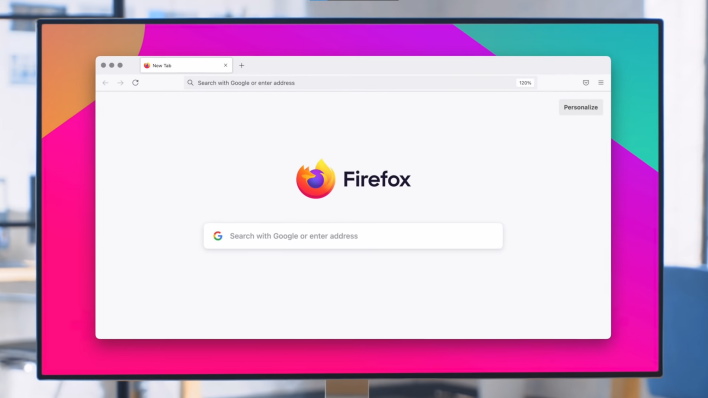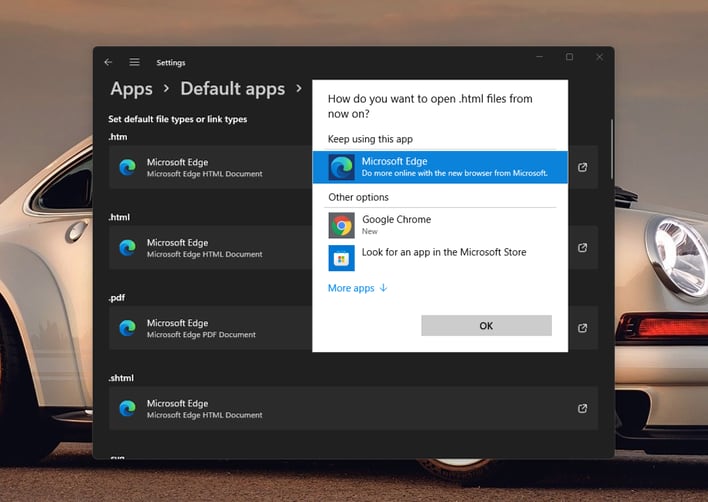Mozilla Bypasses Microsoft’s Windows 11 Default Browser Tomfoolery With Firefox 89

At the time, Mozilla SVP Selena Decklemann warned that Microsoft's behavior towards third-party browsers had become untenable. "We have been increasingly worried about the trend on Windows. Since Windows 10, users have had to take additional and unnecessary steps to set and retain their default browser settings. These barriers are confusing at best and seem designed to undermine a user's choice for a non-Microsoft browser."
Well, Mozilla has had enough, as the company reverse-engineered the one-click method that Microsoft uses to set Edge as the default browser in Windows 11. So now, users can set Firefox 89 as the default from within the browser itself rather than navigating to Settings and mucking around with individual file associations (HTM, HTML, PDF, SHTML, SVG, WEBP, XHT, XHTML, FTP, HTTP, and HTTPS).

Microsoft doesn't support this type of "workaround" for third-party browsers and reserves this functionality for Edge. This is because the company wants to prevent malware from hijacking browsers to set them as the default against the users' wishes. We understand Microsoft's point concerning anti-hijacking provisions, but its somewhat shady behavior in setting the default browser brought Mozilla to this point.
"People should have the ability to simply and easily set defaults, but they don't. All operating systems should offer official developer support for default status so people can easily set their apps as default," said a Mozilla spokesperson to The Verge. "Since that hasn't happened on Windows 10 and 11, Firefox relies on other aspects of the Windows environment to give people an experience similar to what Windows provides to Edge when users choose Firefox to be their default browser."
Tell us what you think about Mozilla's actions in the comments below. Is the Firefox developer barking up the wrong tree by bypassing Microsoft's "security" provisions? Or is Mozilla in the right here, bringing attention to what it sees as underhanded maneuvering by Microsoft to keep Windows 10 and Windows 11 users attached to Edge?

